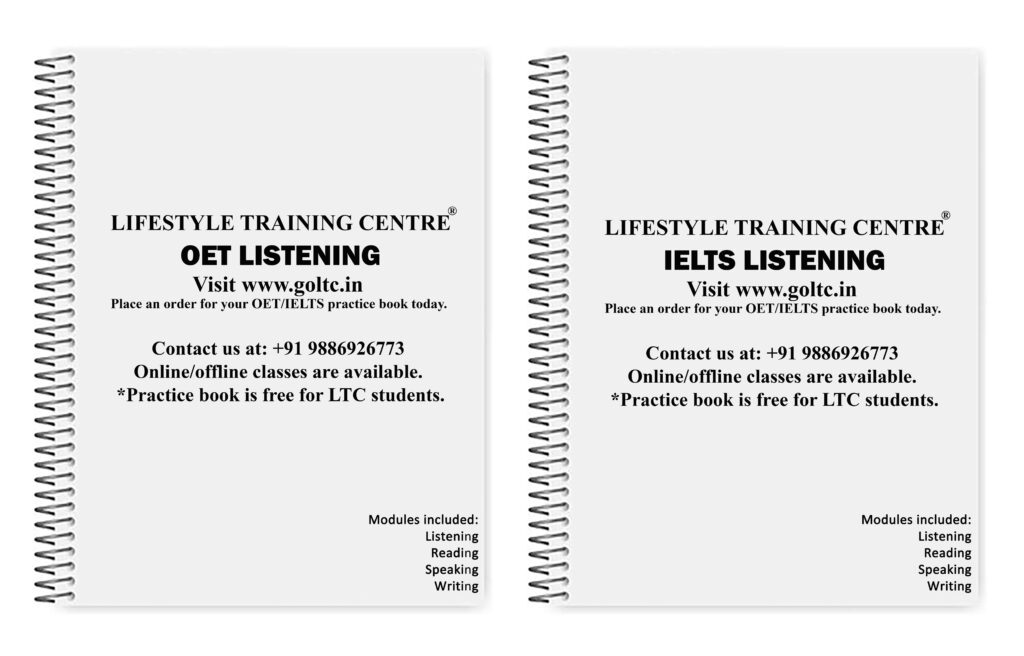
Model answer by Lifestyle Training Centre:
Embarking on a journey to transcend my introverted nature and conquer limited communication skills, I delved into the intricacies of the English language about five years ago. Not claiming to be the sharpest tool in the shed, I honed my English speaking skills with dedication and persistence, knowing that it could give me an edge, not only in the professional arena but also in forging meaningful connections with a diverse array of individuals.
This linguistic prowess, particularly in English, I deem as a coveted skill, a veritable ace up the sleeve in the realm of effective communication. The dividends reaped from this proficiency have been manifold.
First and foremost, navigating interviews became a breeze after mastering the art of eloquent expression. The facility to articulate thoughts seamlessly has proven invaluable not only in professional settings but also in addressing diverse audiences and engaging in spontaneous, free-flowing conversations. Gone are the days of hesitation and stumbling over words.
Is this linguistic finesse essential for others to acquire? Absolutely. In an era where the world is a global village, English stands as the lingua franca. Students, in particular, stand to gain significantly as English serves as the conduit for international communication and academic discourse.
Now, let’s delve into the roadmap for cultivating this linguistic finesse. Mastery begins with an understanding of grammatical nuances, encompassing the labyrinth of tenses, verb forms, and subject-verb agreements. Weaving these threads of knowledge together, one can fashion a tapestry of articulate expression. Furthermore, the auditory senses play a pivotal role; regular exposure to native English speakers through podcasts, films, or conversations can be likened to a linguistic workout, enhancing proficiency.
In the tapestry of life, the skill of articulate English speaking can be likened to a vibrant thread that weaves connections, bridges gaps, and opens doors. It’s not merely a skill; it’s a passport to a world of opportunities. So, one can embrace the challenge, navigate the linguistic labyrinth, and let the eloquence of their words become a symphony that resonates across borders.
List of vocabulary used:
- Transcend – To rise above or go beyond something (e.g., limitations or difficulties).
- Conquer – To overcome or gain control over something.
- Sharpest tool in the shed – An idiomatic expression meaning to be the smartest or most capable person.
- Dedication – The quality of being committed to a task or purpose.
- Persistence – Continuing to do something despite difficulties or delay in achieving success.
- Edge – An advantage or benefit.
- Diverse array – A wide variety of different things or people.
- Prowess – Skill or expertise in a particular area.
- Coveted skill – A highly desired or sought-after skill.
- Ace up the sleeve – A hidden advantage or secret strength.
- Dividends – Profits or benefits received from an investment or effort.
- Manifold – Many and varied.
- Breeze – Something that is easy to do.
- Eloquent expression – The ability to express oneself clearly and effectively.
- Facility – Ease or ability to do something.
- Diverse audiences – A wide range of different people or groups.
- Spontaneous, free-flowing – Natural, unplanned, and effortless.
- Hesitation – A pause or delay due to uncertainty.
- Stumbling – Tripping over words or ideas, often due to nervousness or lack of preparation.
- Finesse – Skill and subtlety in handling something.
- Lingua franca – A common language used for communication between speakers of different languages.
- Conduit – A medium or channel through which something flows (e.g., communication).
- Roadmap – A plan or guide for achieving something.
- Nuances – Subtle differences or variations.
- Labyrinth – A complex or intricate system or structure.
- Tapestry – A complex and intricate combination of things.
- Auditory senses – The ability to hear and process sounds.
- Work out – To engage in physical or mental exercise to improve or practice a skill.
- Passport – A figurative term for a key or means to access something, usually opportunities.
- Symphony – A harmonious combination of elements.
Idioms and Phrases:
- Sharpest tool in the shed – Refers to someone who is very clever or capable.
- Ace up the sleeve – A hidden advantage or secret strength.
- Breeze – Referring to something that is very easy to accomplish.
- Spontaneous, free-flowing – Refers to something that is natural, unplanned, or effortless.
- Taken for a ride – To be deceived or tricked.
- Hard pill to swallow – Something that is difficult to accept or understand.
- Cover my bases – To take all necessary precautions or steps to ensure success or avoid problems.
- Get back to me – To respond or contact someone later.
- Take a deep breath – To calm oneself, often before taking action.
- Let the words become a symphony – Metaphor for speaking beautifully, fluently, or eloquently.
Tenses used:
Let’s break down the speech and identify the tenses used for each part, sentence, and phrase:
1. Embarking on a journey:
– Present participle (gerund): “Embarking”
2. I delved into the intricacies:
– Past simple: “delved”
3. Not claiming to be the sharpest tool in the shed:
– Present participle (gerund): “claiming”
– Present simple: “am”
4. I honed my English speaking skills:
– Past simple: “honed”
5. Knowing that it could give me an edge:
– Present participle (gerund): “Knowing”
– Present simple: “could give”
6. This linguistic prowess, particularly in English, I deem as a coveted skill:
– Present simple: “deem”
7. The dividends reaped from this proficiency have been manifold:
– Present perfect: “have been”
8. Navigating interviews became a breeze:
– Past simple: “became”
9. The facility to articulate thoughts seamlessly has proven invaluable:
– Present perfect: “has proven”
10. Gone are the days of hesitation and stumbling over words:
– Present perfect: “are”
11. Is this linguistic finesse essential for others to acquire?:
– Present simple: “Is”
12. English stands as the lingua franca:
– Present simple: “stands”
13. Students, in particular, stand to gain significantly:
– Present simple: “stand”
– Infinitive: “to gain”
14. Now, let’s delve into the roadmap:
– Present simple: “let’s delve”
15. Mastery begins with an understanding:
– Present simple: “begins”
16. Encompassing the labyrinth of tenses, verb forms, and subject-verb agreements:
– Present participle (gerund): “Encompassing”
17. Weaving these threads of knowledge together:
– Present participle (gerund): “Weaving”
18. One can fashion a tapestry of articulate expression:
– Present simple: “can fashion”
19. Furthermore, the auditory senses play a pivotal role:
– Present simple: “play”
20. Regular exposure to native English speakers through podcasts, films, or conversations can be likened to a linguistic workout:
– Present simple: “can be likened”
21. The skill of articulate English speaking can be likened to a vibrant thread:
– Present simple: “can be likened”
22. It’s not merely a skill; it’s a passport:
– Present simple: “It’s”
23. So, one can embrace the challenge, navigate the linguistic labyrinth:
– Present simple: “can embrace,” “navigate”
24. And let the eloquence of their words become a symphony that resonates across borders:
– Present simple: “let become,” “resonates”
IELTS Speaking Task Topics
Click on any topic to explore more!
Names

Learn about the importance of names and their cultural significance.
Study / Job

Discuss various aspects of studying and working in different fields.
Hometown

Explore the charm of your hometown and its unique features.
Accomodation

Understand various types of accommodation and living situations.
Weather

Learn about how weather influences daily life and activities.
Time

Discuss the concept of time, its importance, and time management.
Television

Talk about the role of television in modern entertainment.
Museum

Discuss the cultural importance of museums and historical exhibits.
Holidays

Explore the significance of holidays and different celebrations.
Films

Learn about the impact of films on culture and society.
Leisure Time

Discuss how leisure activities impact personal well-being.
Sport

Talk about the role of sports in health, entertainment, and culture.
Vegetables and Fruits

Discuss the health benefits and importance of fresh produce.
Maths

Explore the role of mathematics in various aspects of life.
Sky

Discuss the beauty and scientific significance of the sky.
Clothes&Fashion

Explore how clothing reflects culture and personal expression.
Weekend

Discuss the importance of weekends and ways people relax.
Reading

Learn about the importance of reading and various reading habits.
Sleep

Explore how sleep impacts physical and mental well-being.
Trees&Plants

Discuss the environmental and health benefits of plants.
Newspaper

Discuss the evolving role of newspapers in the digital age.
Texting

Explore the role of text messaging in modern communication.
Memorising

Learn techniques for improving memory and memorization.
Travelling

Discuss the importance and impact of traveling in modern society.
Communication

Explore the modes and significance of communicating well
Letter&Email

Explore the differences and significance of letters vs. emails.
Swimming

Discuss the benefits of swimming for health and fitness.
Snacks

Explore the role of snacks in daily nutrition and lifestyle.
Photography

Discuss photography’s cultural and artistic significance.
Help

Talk about the importance of offering and receiving help.
History

Discuss historical events and their impact on modern society.
Handwriting

Explore the significance of handwriting in education and culture.
Music

Learn about the influence of music on emotions and society.
Colours

Discuss how colours affect perception and mood.
Teachers

Explore the role of teachers in shaping students’ futures.
Being Alone

Talk about the experience and benefits of spending time alone.
Teamwork

Learn the importance of teamwork in professional and social contexts.
Countryside & City

Explore the charm and benefits of living in the countryside.
Social Media

Discuss the impact of social media on society and relationships.
Friends

Explore the importance of friendships in life.
Artificial Intelligence (AI)

Talk about the future of AI and its role in society.
Climate Change

Discuss the causes and consequences of climate change.
Transportation

Explore different modes of transportation in your area.
Sustainable Transportation

Explore ways to make transportation more environmentally friendly.
Space Exploration

Learn about the latest advancements in space exploration.
Shopping

Explore how shopping influences culture and the economy.
Modern Technology

Discuss how modern technology is reshaping society.
Technology

Learn about the role of technology in everyday life.
Sustainable Living

Explore ways to live sustainably for the future of the planet.
Globalisation

Learn about the effects of globalisation on society and economies.
Global Warming

Discuss the causes, effects, and solutions to global warming.
Gender Equality

Explore the importance of gender equality in modern society.
Health and Fitness

Discuss the importance of maintaining a healthy lifestyle.
Renewable Energy

Learn about renewable energy sources and their impact on the environment.
Cultural Traditions in Kerala

Explore the unique cultural traditions of Kerala, your hometown.
Cultural Traditions in Your Country

Learn about the cultural traditions in your country.
Education System

Discuss the education system in your country and its effectiveness.
Traditional Cuisine

Explore the significance of traditional cuisines in your culture.
Do you need printed IELTS/ OET practice material? Place your order today. Available now for just Rs: 1,100 (including shipping all across India) Contact us at our WhatsApp number: +91 9886926773 to place your order. (Free for LTC students)

We hope this information has been valuable to you. If so, please consider a monetary donation to Lifestyle Training Centre via UPI. Your support is greatly appreciated.

Would you like to undergo training for OET, PTE, IELTS, Duolingo, Phonetics, or Spoken English with us? Kindly contact us now!
📱 Call/WhatsApp/Text: +91 9886926773
📧 Email: mail@goltc.in
Visit us in person by following the directions on Google Maps. We look forward to welcoming you to the Lifestyle Training Centre.
Follow Lifestyle Training Centre on social media:
Thank you very much!
